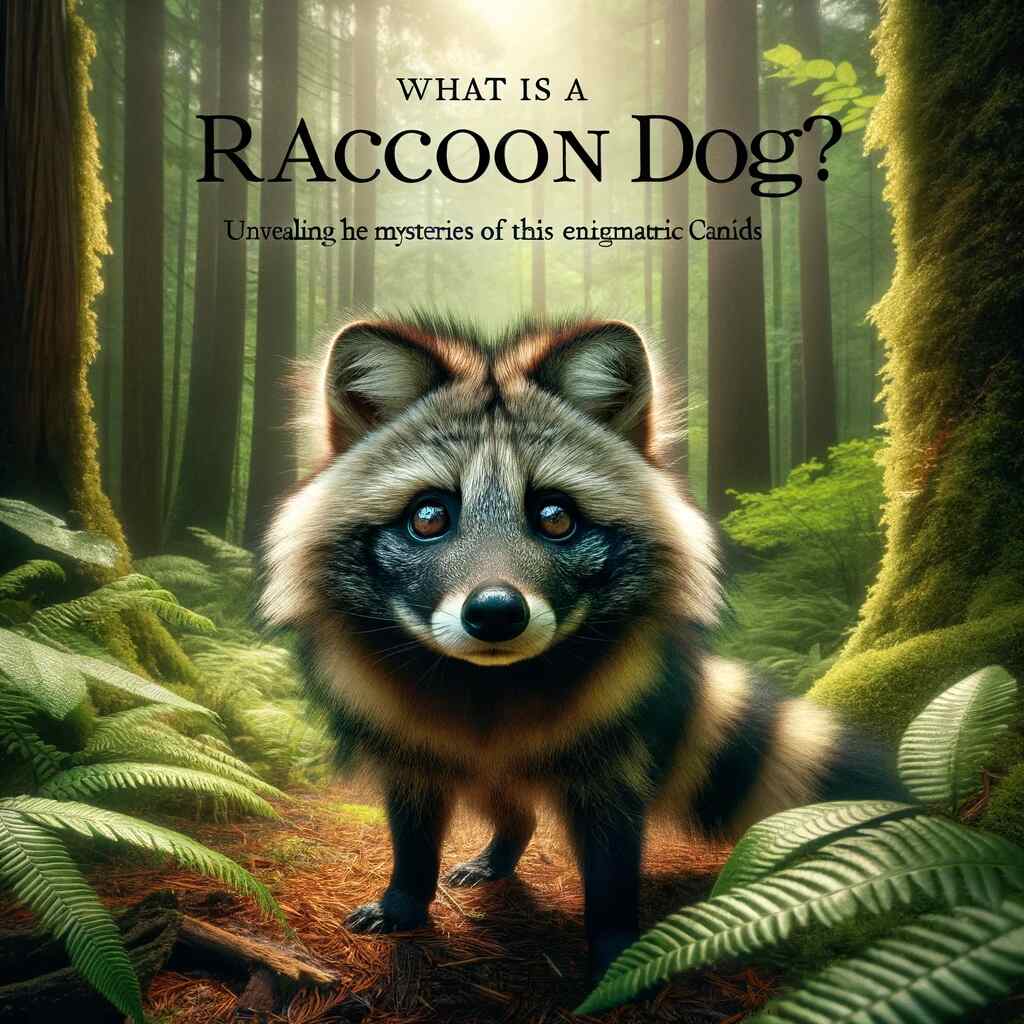Raccoon dogs, also known as tanuki in Japan, are enigmatic creatures that have piqued the curiosity of many. Are raccoon dogs really dogs? Or raccoons? The confusion surrounding these furry creatures is more common than you might think. In this comprehensive article, we’ll unravel the mysteries of raccoon dogs, including their origins, appearance, behavior, and why they should never be considered as pets. Let’s embark on a journey to discover what makes these creatures truly unique.
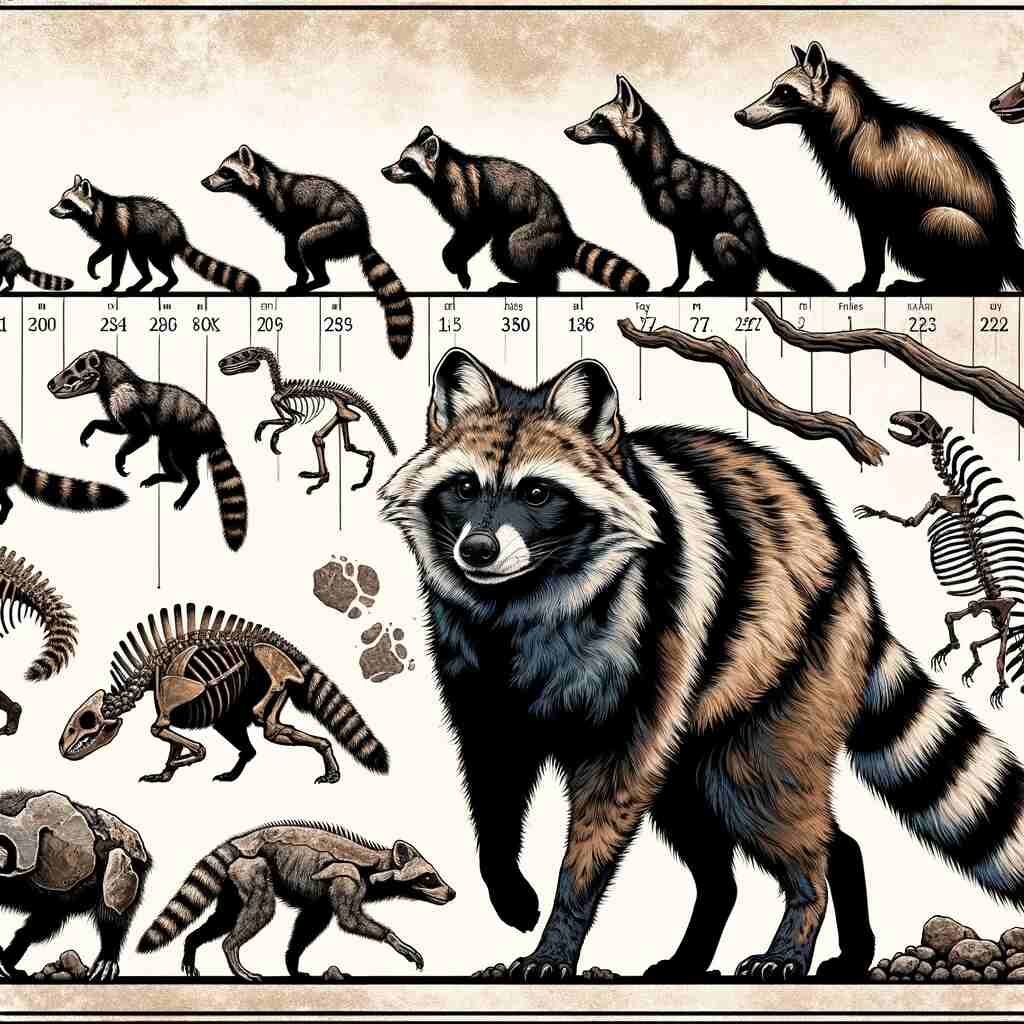
Unraveling the Origins and Evolution of Raccoon Dogs
To understand raccoon dogs, we need to dive into their evolutionary history. While their name might suggest a link to raccoons, they belong to the canid family, which includes dogs, wolves, and foxes. However, their closest relatives are actually foxes and badgers, making them unique members of the canid family.
Evidence of raccoon dogs’ existence dates back hundreds of thousands of years. Fossils found in late Pliocene sites across Italy, France, Hungary, and Romania hint at an ancestral species of raccoon dogs. Other fossils suggest that raccoon dogs first emerged during the Pleistocene era, spanning from roughly 2,588,000 to 11,700 years ago. These ancient roots showcase the enduring legacy of these captivating creatures.
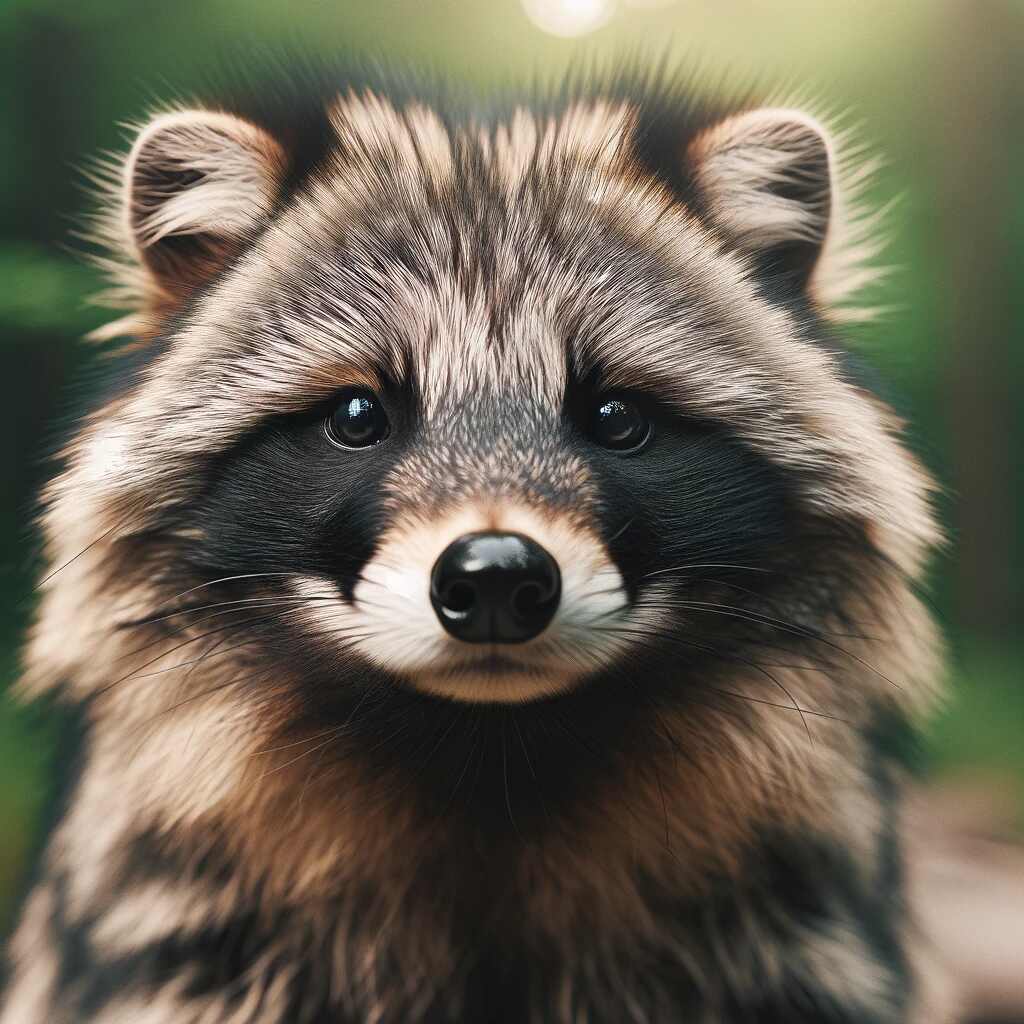
Unlocking the Appearance of Raccoon Dogs
One of the defining features of raccoon dogs is their distinctive appearance, setting them apart from other canids. They sport thick, long fur that comes in various shades, ranging from black and brown to white and gray. This fur serves as both insulation and protection in their natural habitats.
Raccoon dogs have evolved to be perfectly suited to their environment, with curved claws that facilitate effortless tree climbing. Their dexterous front paws allow them to grasp objects with remarkable precision, making them highly skilled foragers. These creatures possess long torsos, short legs, and small, pointed facial features, giving them an adorable raccoon-like appearance.
However, it’s important to exercise caution when encountering raccoon dogs due to their potential link to diseases and coronaviruses. While their exact role in the COVID-19 outbreak remains uncertain, their capacity to carry diseases emphasizes the importance of observing these animals from a safe distance.
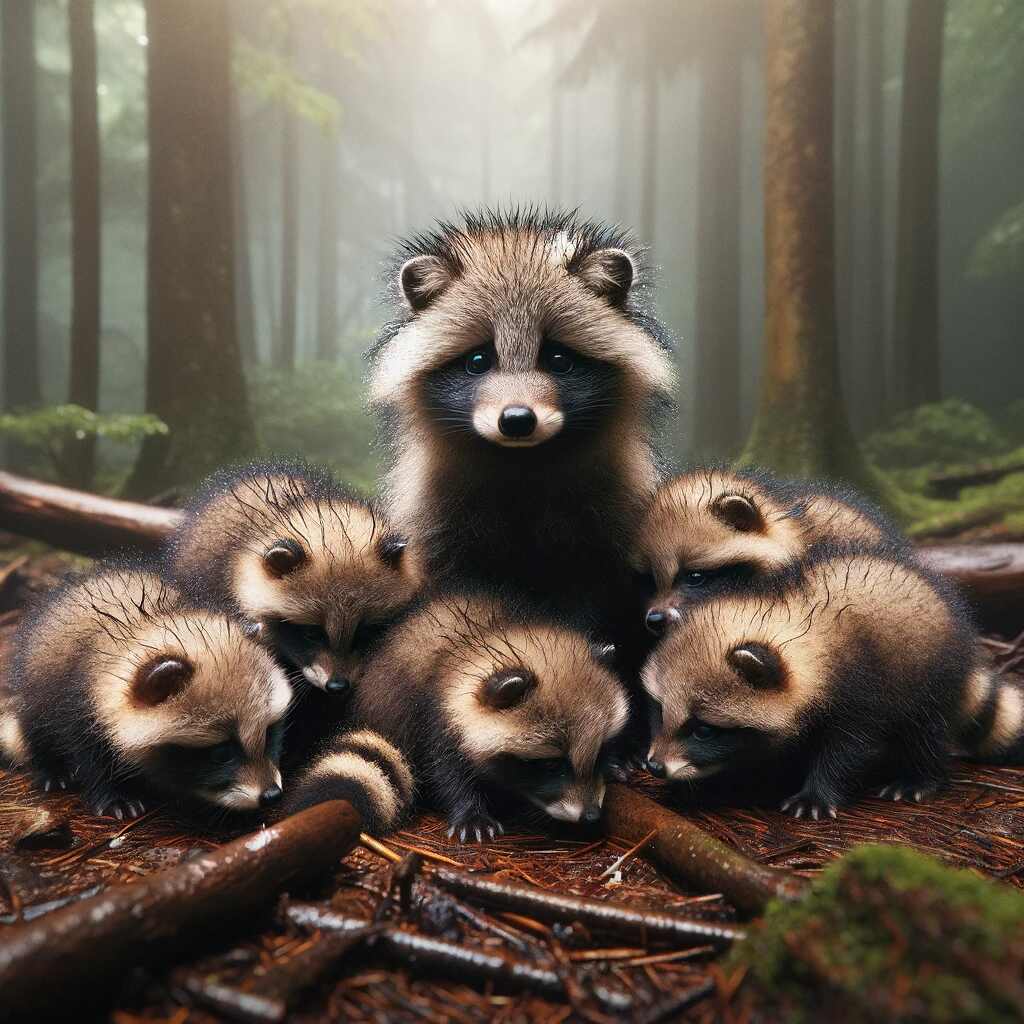
Unveiling the Behavior and Social Structure of Raccoon Dogs
Raccoon dogs exhibit a fascinating blend of characteristics that make them captivating subjects for study. They are often described as “curious yet shy,” reflecting their cautious yet inquisitive nature. In terms of social structure, raccoon dogs form tight-knit communities, coming together to raise their young and support one another in the relentless pursuit of survival.
Male raccoon dogs display remarkable compassion and dedication as partners. They take on the crucial roles of foraging for food and caring for pregnant females. The communal effort extends to raising their young together, fostering a sense of resilience and cooperation in the wild.
Despite their social structure, raccoon dogs face a plethora of threats from predators. Wolves, wild cats, foxes, and birds of prey all pose dangers to these creatures. Sadly, humans also contribute to this threat, as raccoon dogs are farmed for their fur and meat. Shockingly, over 14 million raccoon dog pelts were produced in China alone in 2014, with additional production occurring in regions like Europe.
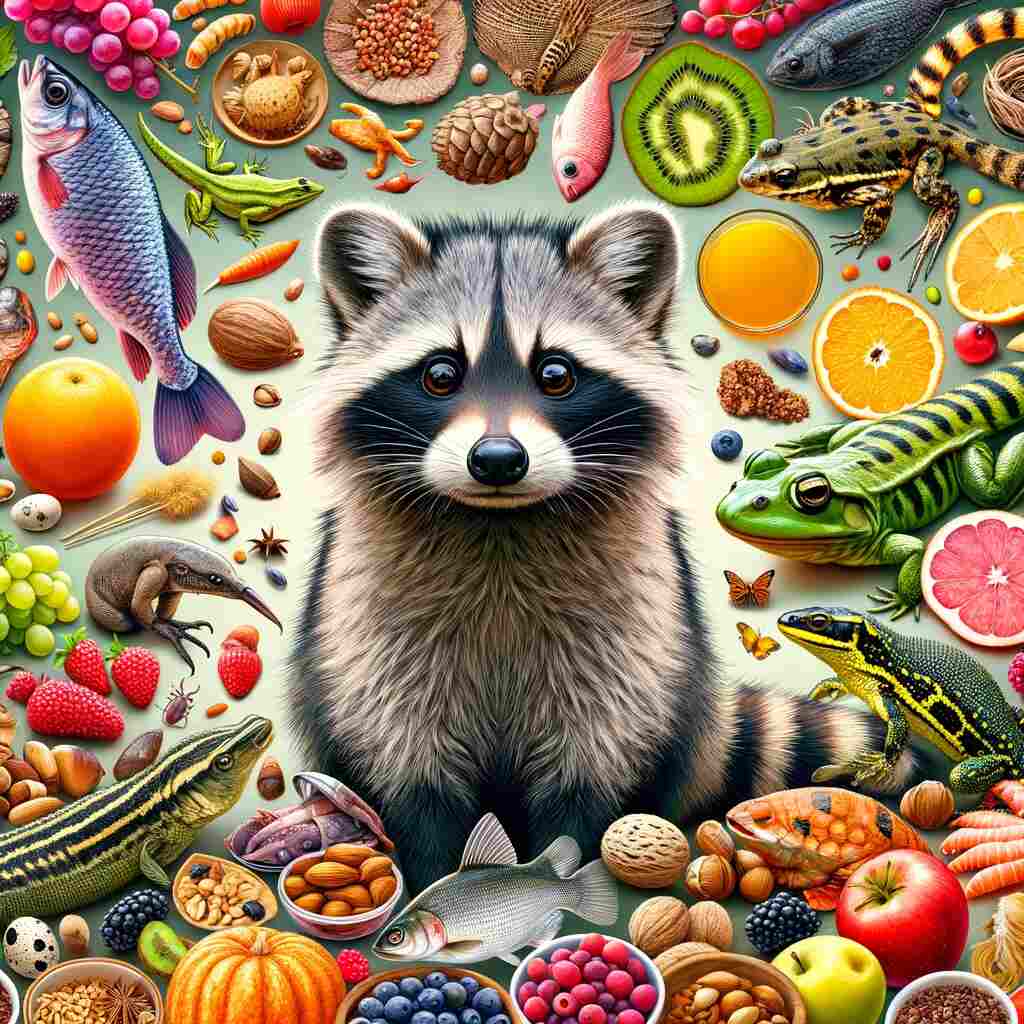
Exploring the Dietary Habits of Raccoon Dogs
Raccoon dogs are adaptable omnivores with a diverse diet that reflects their ability to thrive in different environments. Their diet includes fish, frogs, birds, eggs, amphibians, reptiles, small invertebrates, insects, fruit, seeds, nuts, and berries. This wide-ranging diet enables raccoon dogs to flourish in diverse ecosystems.
Their capacity to consume a variety of foods plays a pivotal role in their survival, allowing them to adapt to shifting conditions and seasonal changes. As opportunistic feeders, they can adjust their diet based on the availability of resources, making them highly resilient in the face of environmental challenges.
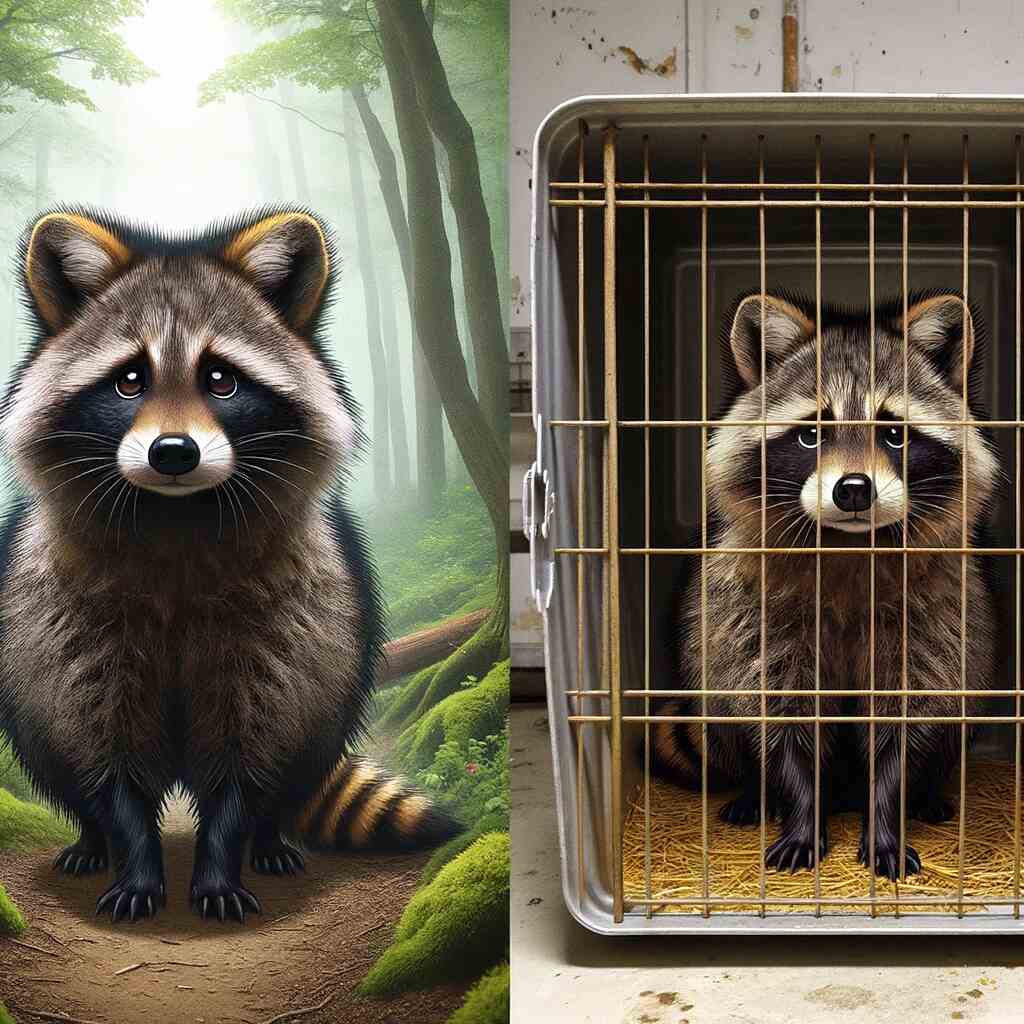
Can Raccoon Dogs Be Kept as Pets? A Resounding “No”
The idea of keeping a raccoon dog as a pet may be enticing to some, but it’s an ill-advised and potentially perilous endeavor. In the United States, individuals can obtain a special permit from the U.S. Fish and Wildlife Service to keep raccoon dogs. Nevertheless, several compelling reasons discourage keeping them as pets:
- Health Risks: Raccoon dogs are suspected of being linked to viruses and diseases, including their potential role in the COVID-19 outbreak. This risk makes them unsuitable as household pets, posing a danger to both humans and other animals.
- Quality of Life: Raccoon dogs are wild animals with specific habitat requirements. They demand ample space, access to natural environments, and opportunities to engage in their natural behaviors. Keeping them in captivity denies them these essential elements, leading to a diminished quality of life.
- Invasiveness: Raccoon dogs can swiftly become invasive species if they escape or are released into unfamiliar environments. This has occurred in Europe, where raccoon dogs were introduced from East Asia for fur farming. Their presence can disrupt local ecosystems and harm native wildlife.
Given these compelling concerns, it is strongly recommended to choose a domesticated shelter pet, which is better suited for life in a human environment, rather than attempting to keep a raccoon dog as a pet.
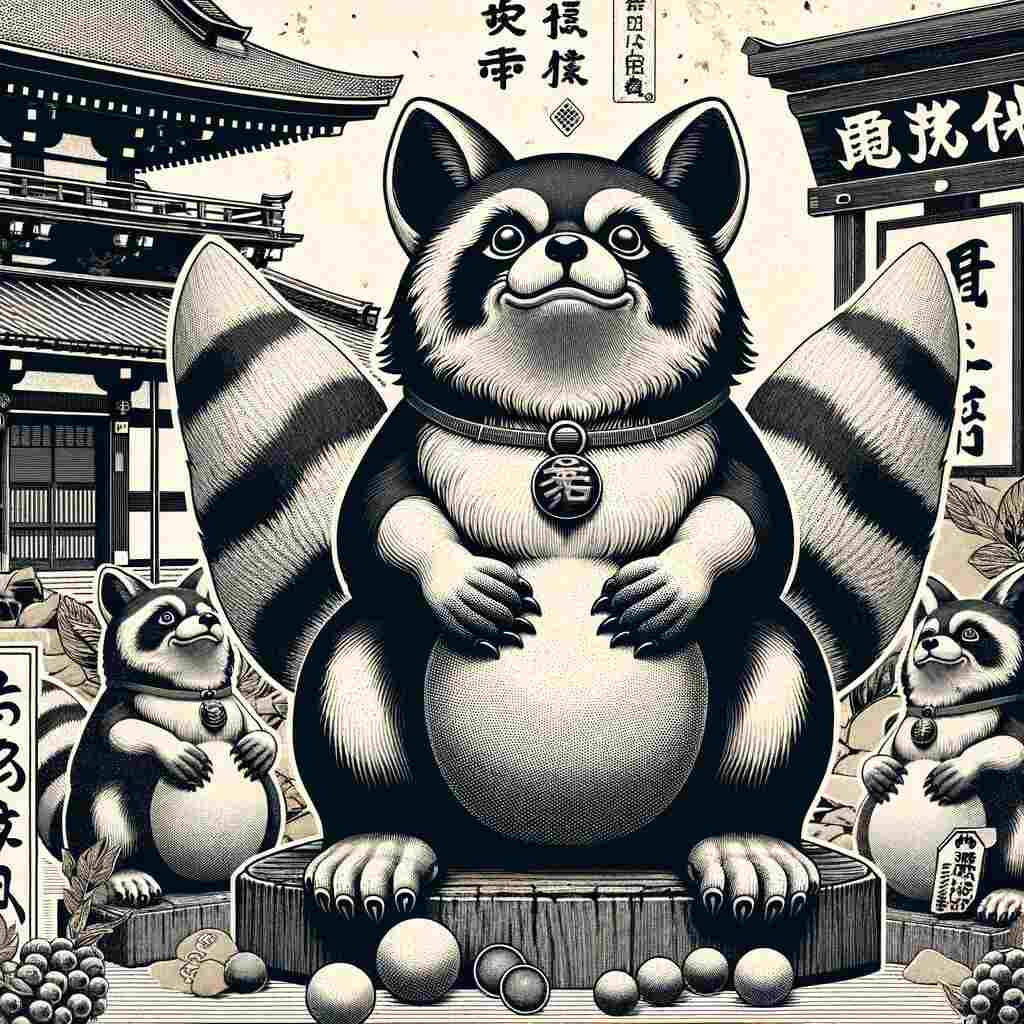
Fascinating Facts about Raccoon Dogs
Raccoon dogs are captivating creatures with a wealth of unique traits and cultural significance. Here are some intriguing facts about them:
- Limited Presence in the United States: Raccoon dogs are not common in the United States. Only a few accredited zoos, such as those in Oklahoma City and Atlanta, care for raccoon dogs. This rarity makes them a subject of curiosity for many Americans.
- History of Fur Farming: Sadly, raccoon dogs have a dark history of inhumane breeding for their fur, which is used in fur coats and calligraphy brushes. Although many countries have outlawed fur farming, it still persists in some parts of Asia, raising ethical concerns.
- Hibernation-Like Behavior: Raccoon dogs exhibit an unusual behavior for canids—they enter a hibernation-like state during the winter. To achieve this, their body mass increases by 50 percent, their metabolism decreases by 25 percent, and they seek refuge in burrows, often alongside their partners, until the arrival of warmer weather.
- Japanese Folklore: In Japanese folklore, raccoon dogs, known as tanukis, hold a prominent place. These creatures are often depicted with oversized scrotums, symbolizing good luck and prosperity, particularly in matters related to finances. Many businesses in Japan place tanuki totems near their establishments in hopes of attracting wealth and success.
In conclusion, raccoon dogs are captivating beings with a rich history and a range of unique traits. Their evolutionary lineage, distinctive appearance, and complex social structure make them intriguing subjects of study. However, their unsuitability as pets, combined with the risks they pose, emphasizes the importance of appreciating and protecting them in their natural habitats. As we continue to explore and understand the mysteries of raccoon dogs, let us also advocate for their conservation and well-being in a world where their future remains uncertain.


